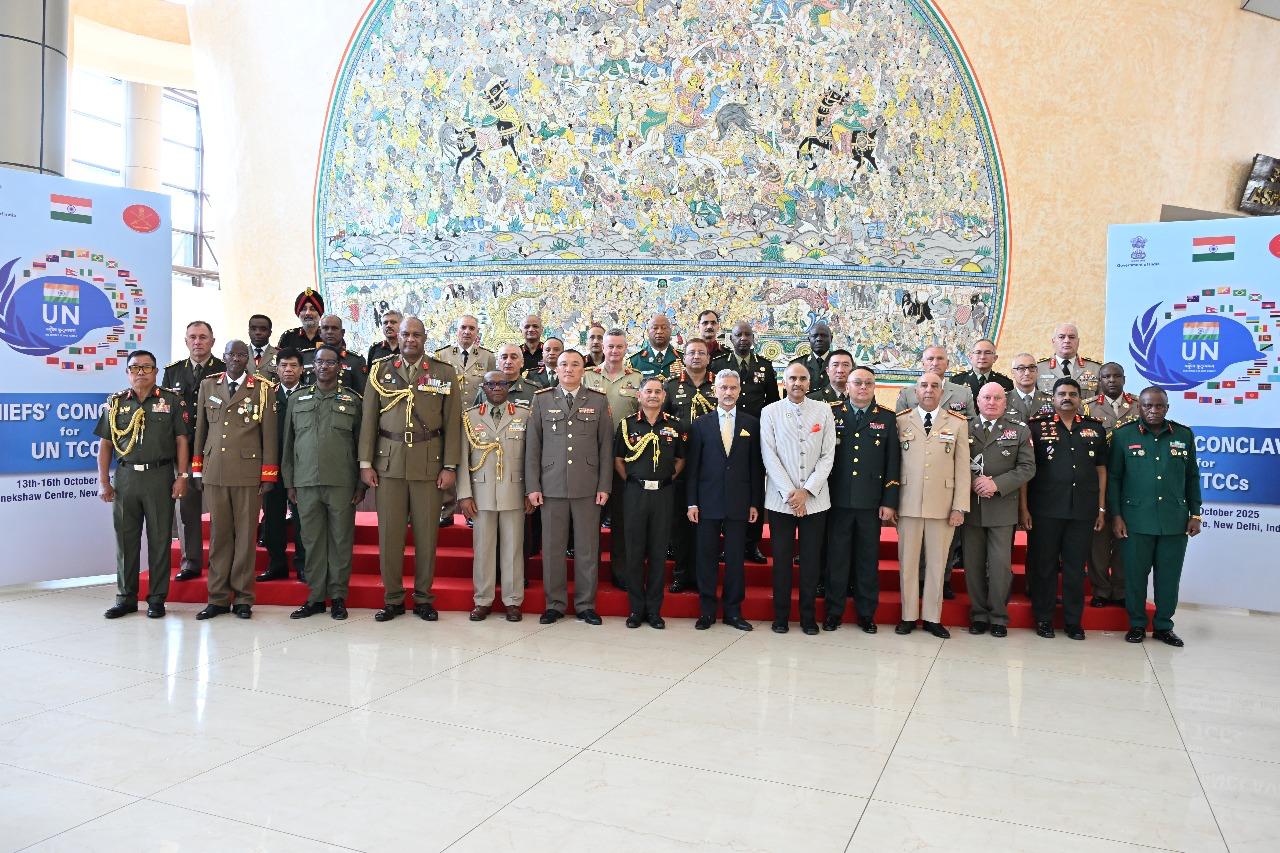The UN Troop Contributing Countries (UNTCC) Chiefs’ Conclave 2025, hosted by the Indian Army from October 14 to 16, concluded in New Delhi with a shared commitment to enhance global peacekeeping efforts and strengthen cooperation among nations contributing to United Nations missions.
The three-day conclave featured high-level deliberations, solemn ceremonies, and a reaffirmation of the collective resolve to make UN peacekeeping more effective and adaptive to emerging challenges.
President Droupadi Murmu interacted with the Chiefs and representatives of the UN Troop Contributing Nations during a call-on at Rashtrapati Bhavan. Acknowledging the invaluable role of Indian peacekeepers, she lauded all participating nations for their dedication to sustaining global peace and prosperity.
The President expressed satisfaction over the collaborative spirit of the conclave, saying that such engagements help evolve a workable framework for future peacekeeping operations in an increasingly complex world order. She also stressed the need to engage all stakeholders and harness technology to deepen cooperation, strengthen friendships, and ensure the safety of peacekeepers.
External Affairs Minister S. Jaishankar, in his address, highlighted the changing nature of global conflicts with the rise of non-state actors and asymmetric warfare. He underlined the importance of recalibrating peacekeeping mandates in close consultation with all stakeholders, including troop-contributing and host nations.
Jaishankar noted that while UN peacekeeping remains vital to global stability, it must evolve through realistic mandates, greater technological adoption, and enhanced safety mechanisms for peacekeepers.
An interactive session on “Leveraging Technology in UN Peacekeeping” brought together Chiefs and representatives of UNTCCs along with 15 industry leaders. Discussions explored the role of indigenous innovation and technology in enhancing operational effectiveness, situational awareness, logistics, and troop safety.
Chief of the Army Staff General Upendra Dwivedi held bilateral meetings with his counterparts from Burundi, Tanzania, Poland, Ethiopia, Nepal, and Uganda. The talks focused on strengthening defence cooperation, improving interoperability, and fostering coordination in future peacekeeping missions, reflecting the conclave’s spirit of partnership and shared responsibility for global peace and stability.
As part of the conclave, a Defence Expo was organised featuring nine operational domains and 41 exhibitors. The exhibition showcased a diverse range of indigenous weapon systems, platforms, and cutting-edge technologies, underscoring India’s commitment to Aatmanirbharta (self-reliance) in defence manufacturing and innovation.
On Thursday, visiting Chiefs and their spouses paid tribute at the National War Memorial, honouring the sacrifice of India’s soldiers. A tree plantation ceremony followed at the Manekshaw Centre, where Ashoka saplings were planted in the “Peacekeepers Grove” under the national initiative Ek Ped Maa Ke Naam, symbolising gratitude, care, and the bond between humanity and nature.
The conclave concluded with a unanimous agreement that UN peacekeeping must evolve through inclusive decision-making that strengthens the role of troop-contributing nations, realistic mandates prioritising the safety and welfare of peacekeepers, and the use of indigenous and cost-effective technologies to enhance mission outcomes. It also underscored the importance of improving interoperability and training to prepare troops for complex operational environments and fostering sustained partnerships rooted in trust, cooperation, and shared responsibility.










